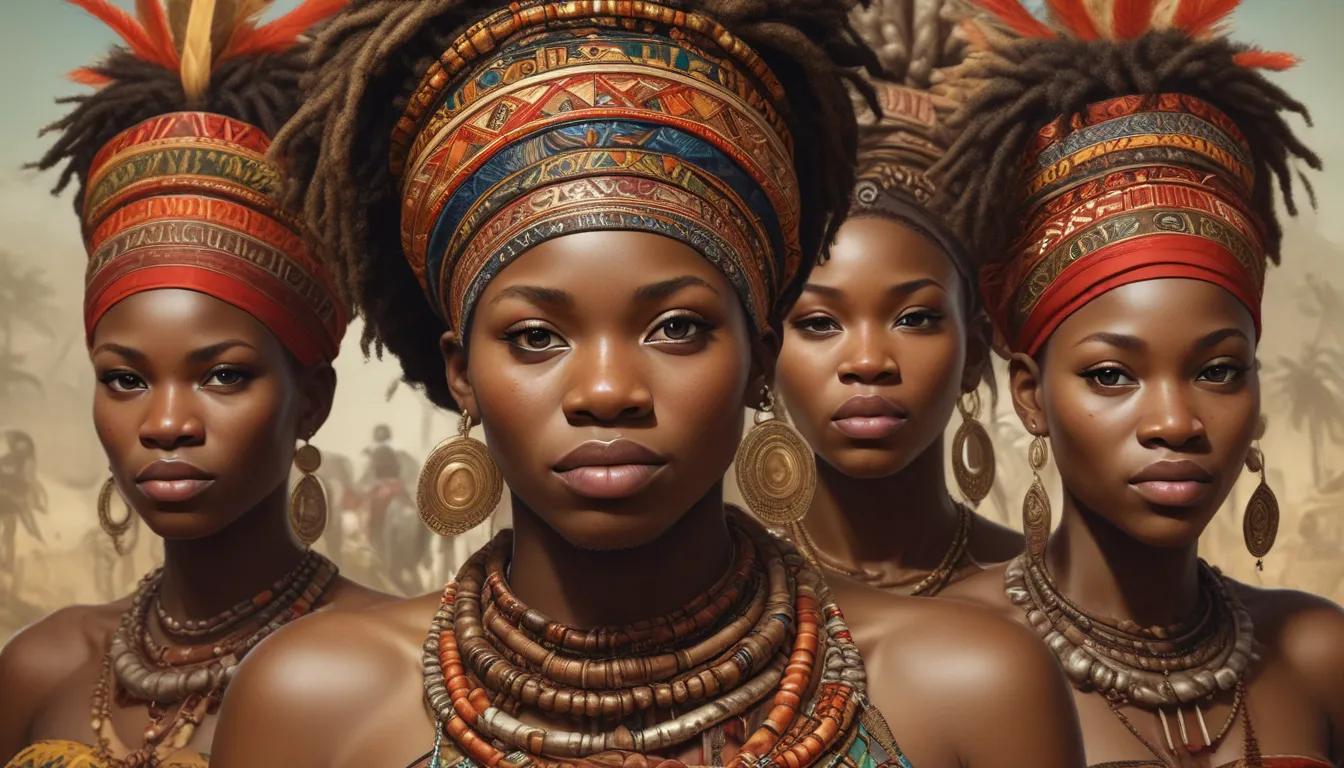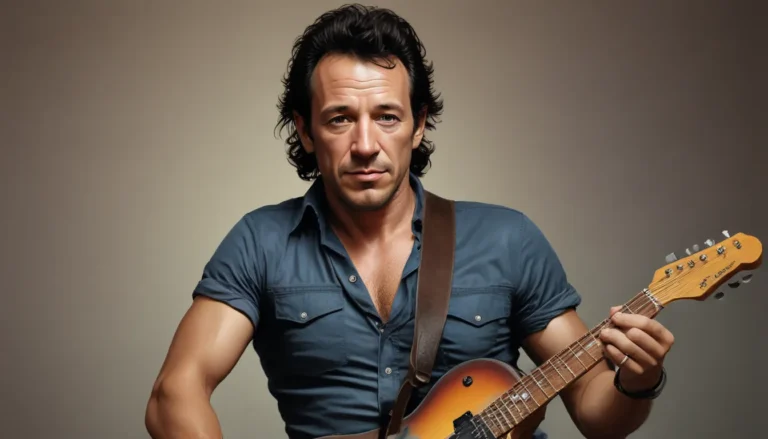The images in our articles may not match the content exactly. They are used to grab your attention, not to show the exact details in the text. The images complement the text but do not replace it.
Have you ever been intrigued by the diverse cultures that enrich our world? Today, we’re taking a closer look at the Igbo tribe in Nigeria, known for their vibrant customs and significant contributions to global society. With a history rooted in resilience and innovation, the Igbo people have captivated the world with their rich heritage. Join us on this cultural journey as we uncover 33 intriguing facts about the Igbo tribe that will inform and inspire you.
Unveiling the Igbo Tribe
The Igbo tribe, a prominent ethnic group in Africa, calls southeastern Nigeria their home. With a population of over 30 million, the Igbo people form one of the largest communities on the continent, enriching the social fabric of Nigeria and beyond. Let’s delve into some fascinating facts that shed light on the significance and influence of the Igbo tribe.
- Language and Dialects: The Igbo people predominantly speak the Igbo language, which encompasses various dialects across different regions. This linguistic diversity highlights the depth of their cultural heritage.
- Population: With a population exceeding 30 million, the Igbo tribe stands as a significant ethnic group with a profound impact on Nigerian society.
Tracing Historical Roots
The history of the Igbo tribe is steeped in rich traditions and societal structures that date back centuries. Let’s explore some key historical milestones that have shaped the Igbo culture.
- Origins: Historical records trace the origins of the Igbo people to the 9th century, revealing advanced societal structures and technological innovations.
- Aro Confederacy: In the 17th century, the Aro Confederacy played a pivotal role in regional trade networks, influencing economic and political dynamics in West Africa.
Embracing Cultural Traditions
The Igbo tribe’s cultural tapestry is adorned with vibrant festivals, intricate attire, and elaborate marriage customs. Let’s take a closer look at some of these captivating traditions.
- Festivals: The Igbo calendar is replete with colorful celebrations, such as the New Yam Festival, marking the harvest season and the beginning of a new cycle.
- Traditional Attire: The Igbo traditional attire, including the ‘Isiagu’ shirt for men and ‘Wrappa’ for women, symbolizes status and heritage at ceremonies and significant events.
- Marriage Customs: Igbo marriage ceremonies, like the ‘Igba Nkwu’ wine carrying ritual, honor ancestral traditions and strengthen familial bonds.
Contributions to Society
The Igbo tribe has made significant contributions to various sectors, from agriculture and commerce to art and literature. Let’s explore the impact of the Igbo people across different domains.
- Agriculture: Historically farmers, the Igbo people cultivated staple crops like yam, cassava, and taro, showcasing their deep connection to the land.
- Commerce and Trade: Renowned for their entrepreneurial spirit, many Igbo individuals have excelled in various business sectors, bolstering Nigeria’s economy.
Artistic and Literary Expression
The Igbo people’s artistic heritage transcends through unique art forms like Uli art and renowned literary works that explore the tribe’s culture and history.
- Uli Art: Characterized by intricate designs and symbols, Uli art reflects the artistic prowess and spiritual beliefs of the Igbo people.
- Literary Contributions: Celebrated authors like Chinua Achebe have brought global attention to Igbo culture through impactful works that delve into the effects of colonialism.
Shaping Politics and Society
From advocating for autonomy to fostering education and cultural pride, the Igbo tribe has played a significant role in shaping political and social landscapes.
- Biafra War: The struggle for an independent Biafra state highlighted the Igbo people’s resilience and quest for self-determination in the face of adversity.
- Diaspora: Thriving communities of Igbo individuals outside Nigeria contribute to global cultural diversity and influence various sectors worldwide.
Nurturing Beliefs and Practices
Traditional religions and Christianity intertwine in Igbo society, reflecting a rich spiritual heritage and a blend of ancestral worship with Christian faith.
- Traditional Religion: Prevalent before the rise of Christianity, traditional Igbo spirituality revolved around ancestor worship and reverence for nature spirits.
- Christianity: With the widespread adoption of Christianity, Igbo culture has integrated traditional beliefs into Christian practices, creating a unique spiritual tapestry.
Overcoming Challenges and Achieving Success
Despite facing economic, cultural, and societal challenges, the Igbo region continues to progress in various fields, showcasing resilience and innovation.
- Economic Development: Through entrepreneurship and technological innovation, the Igbo tribe has made significant strides in economic growth and development.
- Cultural Preservation: Initiatives aimed at preserving Igbo language and heritage emphasize the importance of cultural pride and passing down traditions to future generations.
Embracing Global Influence
Igbo individuals excel in diverse fields worldwide, from technology and entertainment to sports and advocacy, showcasing their dynamic talents and unwavering commitment to excellence.
- Technological Innovation: Contributions to Nigeria’s tech industry highlight the Igbo people’s role in shaping the country’s technological landscape.
- Healthcare Innovations: With a holistic approach to well-being, Igbo contributions to healthcare reflect a commitment to community health practices and herbal medicine.
Celebrating Igbo Diversity
From culinary delights and architectural heritage to gender equality and environmental stewardship, the Igbo tribe’s cultural spectrum is as diverse as it is compelling.
- Culinary Traditions: Known for flavorful dishes like ‘Ofe Owerri’ and ‘Akwu,’ Igbo cuisine reflects the tribe’s agricultural heritage and culinary creativity.
- Gender Roles: Evolving towards gender equality, Igbo society witnesses women taking on leadership roles in business and politics, reshaping societal norms.
Inspiring Future Generations
Through education, empowerment, and civic engagement, the Igbo tribe continues to pave the way for a brighter future, nurturing talent and fostering social progress.
- Youth Empowerment: Initiatives focused on educating and empowering Igbo youth cultivate the next generation of leaders and innovators.
- Civic Engagement: Active participation in civic life demonstrates the Igbo people’s commitment to advocating for equitable and just societies.
Embracing Cultural Heritage
As we conclude our journey through the vibrant world of the Igbo tribe, we are reminded of the enduring legacy of resilience, creativity, and community spirit that defines their culture.
In Conclusion
The Igbo tribe’s dynamic culture and rich heritage continue to inspire and captivate people around the world. By understanding and appreciating the diverse traditions, beliefs, and achievements of the Igbo people, we gain valuable insights into the power of cultural heritage in shaping societies and fostering global diversity.
Frequently Asked Questions
Q: What language do the Igbo people speak?
A: The primary language spoken by the Igbo people is Igbo, encompassing various dialects that reflect the cultural diversity within the tribe.
Q: Where is Igboland located?
A: Igboland is situated in southeastern Nigeria, encompassing several states known for their lush landscapes and significant cultural heritage sites.
Q: What are some traditional Igbo foods?
A: Igbo cuisine features a variety of dishes, including yam, cassava, and garri, with popular meals like ‘ofe nsala’ and ‘jollof rice’ that showcase the tribe’s rich culinary traditions.
Q: How do the Igbo people celebrate weddings?
A: Igbo weddings are vibrant celebrations that blend traditional customs with modern elements, emphasizing the importance of family ties and cultural heritage.
Q: What role does the kola nut play in Igbo culture?
A: The kola nut symbolizes hospitality and community in Igbo culture, often offered to guests as a gesture of goodwill and respect.
Q: How have Igbo individuals contributed to global society?
A: Igbo individuals have excelled in various fields, including arts, literature, technology, and sports, showcasing their diverse talents and cultural influence worldwide.
Embracing Diversity and Heritage
The Igbo tribe’s cultural legacy continues to enrich our understanding of the world’s diversity and the enduring power of tradition and innovation. As we immerse ourselves in the fascinating tapestry of Igbo customs and achievements, we celebrate the resilience, creativity, and community spirit that define this remarkable ethnic group. Join us on this cultural voyage to explore the wonders of the Igbo tribe and be inspired by their enduring contributions to global society.






